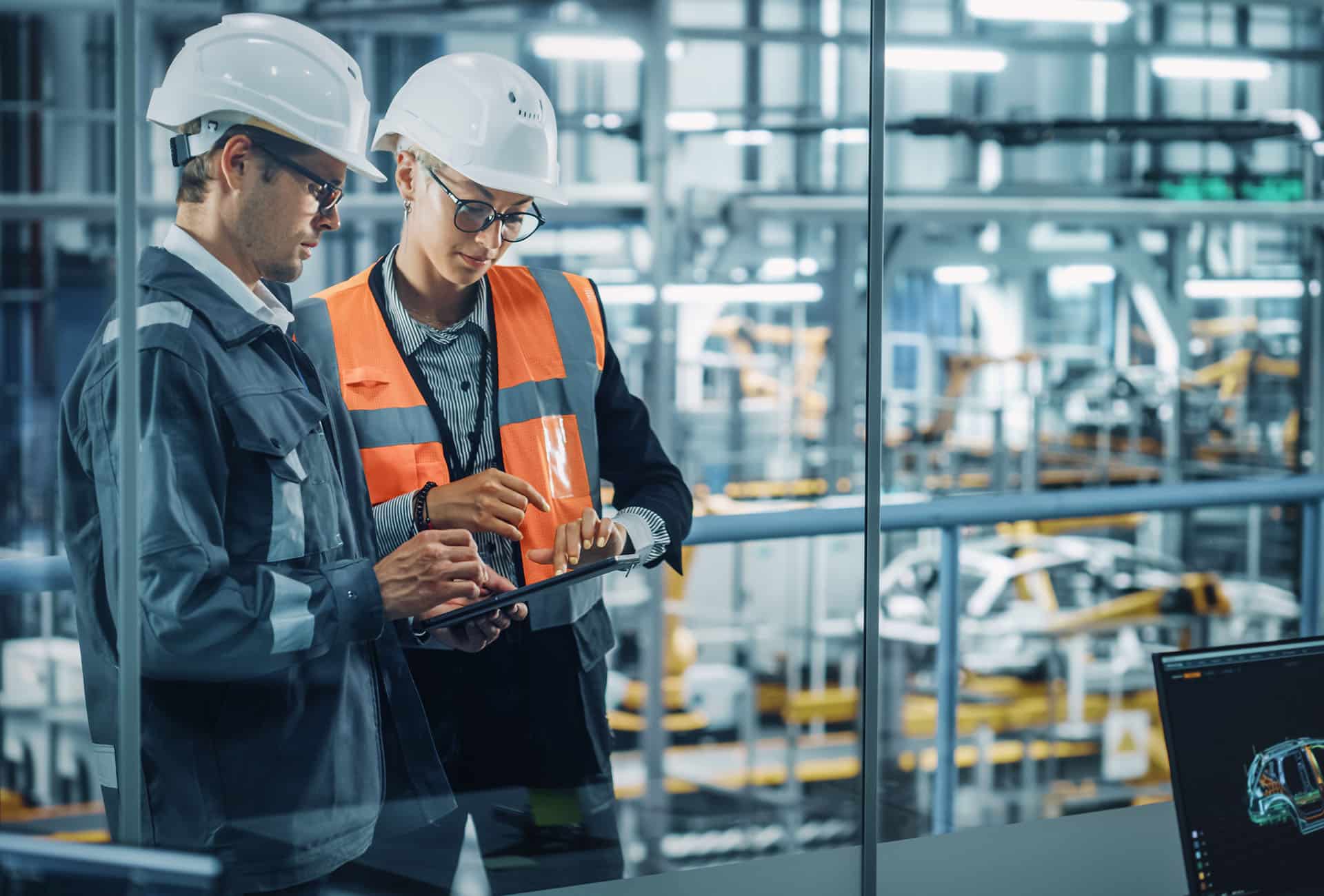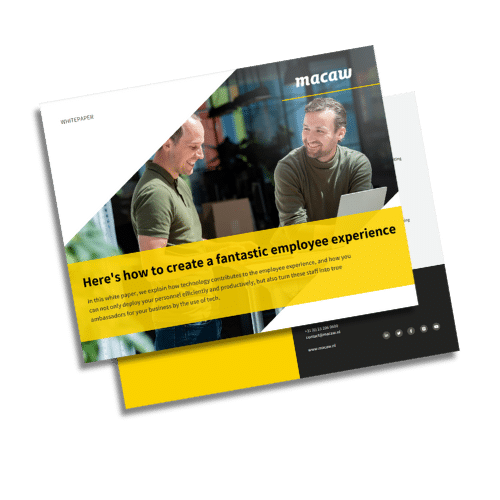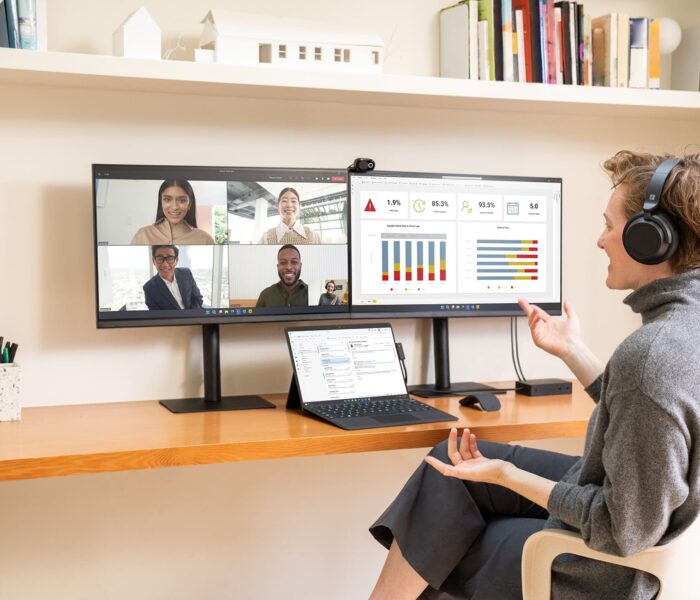Frontline workers have worked hard during the coronavirus pandemic to keep the economy running. Workers in the construction sector were among those literally at the forefront. During this time it also became apparent that these workers are barely connected to their employers’ systems, and as a result are often isolated. Digital connection can help employees to work smarter and more efficiently, and also creates more involvement on the part of the employer.
The construction sector is one of the most traditional industries. Paper is still the medium of choice for many reports and checklists of completed tasks. In recent years, however, this sector too has witnessed growing digitalization and discussion of a digital workplace that contributes effectively to the success of the construction business. A gulf nevertheless remains between the actual needs of employees and the employer’s view of the workplace. McKinsey found that the “frontline workers” appear to be very eager to learn and have a strong need for regular and clear communication.
In the construction sector, the digital workplace is a work environment that combines technology with work in construction trailers, in factories or on scaffolding. It involves integrating digital resources throughout the work process. This may include the use of digital drawings and plans, and even the use of drones to survey construction sites, or augmented reality to assist during building.
Asphalt repair
One major road construction company uses digital tools to inspect asphalt, i.e. to detect damage to the roadway and identify the measures needed for its repair. The accident rate in road construction is still high. The company’s technical solution dramatically reduces the time spent by an inspector on the asphalt, from 45 to two minutes. This makes work not only much more efficient, but also a lot safer.
The solution came from within the road construction crew: a team member responsible for conducting inspections began working on smart applications himself. He provided the initial impetus and the IT team then perfected the application.
The right digital skills
Besides the reduction in time and costs, it’s also important for employees to feel listened to. A modern construction workplace supports cooperation between the trades and employees within a construction company. The use of digital tools enables employees to exchange information and work together easily, even when not in the same location.
Implementing a modern construction workplace presents challenges, however. It’s important to ensure that all employees possess the digital skills they need in order to use the new tools effectively. It may also be difficult at times to strike the right balance between using technology and retaining the traditional practices that are still widespread in the construction sector. The proposed technology must be embraced by the entire company. Companies often face a learning curve during which employees are not available for their usual work because they’re undergoing training. Adoption is now facilitated by workplace gamification, in which employees work and learn at the same time.
Where IT meets HR
All too often, technology is focused solely on productivity and efficiency. These are obviously good reasons for adopting new applications. But technology is also about an emotional bond with co-workers and the employer. Technology can dramatically reduce the distance between the construction trailer and the company office. For example, employees can use video conferencing tools such as Microsoft Teams to cooperate and communicate with ease even when not in the same location.
Employees can also access important information and perform tasks remotely, such as preparing inspection reports. Using augmented reality tools, for example, they can view virtual models of a construction project and visualize the final result much better.
Physical pin boards for schedules or announcements are obsolete: the information on them is too easily overlooked or ignored. Intranets enable organizations to communicate in smarter ways, especially when they include social networking tools like Yammer, collaboration tools like Teams and scheduling tools like StaffHub. The right combination of tools significantly improves cooperation and involvement among employees.
Smart apps can improve the construction process. Consider the following solutions:
- An app to provide employees on the construction site with access to drawings, plans and other important documents.
- An app to track progress as a construction project progresses, and monitor its costs and any problems.
- An app to help employees to solve problems or answer questions arising during the construction process.
- An app to create and manage appointments with clients.
- An app to manage staffing and scheduling.
- An app to create and manage inspection reports.
These are just a few examples. Which apps are most appropriate for a construction company’s own work process are for the company itself to determine.
This sector is also facing a battle for talent. The strategy here is focused primarily on staff retention, and learning is an important aspect in this context. For example, an internal market place assures career progression within the company, since this is where employees find positions, training and opportunities.








